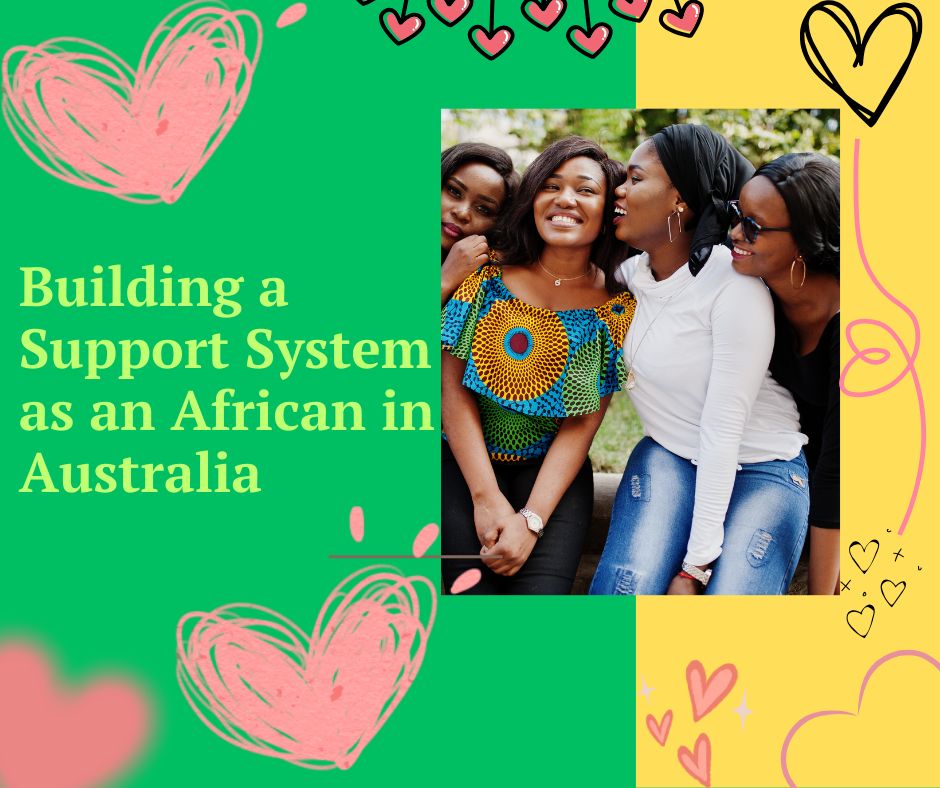1. Connect with the African Community
One of the best ways to build a support system is to connect with other Africans who have gone through similar experiences. Many African communities in Australia host cultural events, social gatherings, and networking opportunities.
How to Get Started:
Join African community groups on Facebook and WhatsApp.
Attend African festivals, meetups, and networking events.
Engage with organizations like the African Australian Council or local cultural associations.
2. Build Friendships Beyond Your Community
While it’s comforting to connect with people from a similar background, it’s also important to expand your social circle to include people from different cultures. This helps with integration and provides diverse perspectives.
How to Get Started:
Join local hobby groups, sports clubs, or volunteering programs.
Attend networking events or professional workshops in your industry.
Use social platforms like Meetup and Afromeet to find like-minded people.
3. Find Mentors and Role Models
Having mentors who understand the challenges of adjusting to life in Australia can be invaluable. Whether they are professionals in your field or community leaders, they can provide guidance, advice, and encouragement.
How to Get Started:
Reach out to successful Africans in Australia through LinkedIn or networking events.
Attend mentorship programs and business forums.
Ask for guidance from elders within the African community.
4. Seek Professional and Emotional Support
Relocating can be emotionally challenging, especially if you experience culture shock, homesickness, or discrimination. Seeking professional support can help you navigate these difficulties.
How to Get Started:
Utilize mental health services like Beyond Blue or Lifeline Australia.
Connect with African therapists or counselors who understand cultural challenges.
Talk openly with trusted friends or family members about your struggles.
5. Strengthen Family Bonds
If you have family members in Australia, strengthening those relationships can be a source of comfort and support. If your family is back home, maintaining close contact through regular calls and visits can help you feel connected.
How to Get Started:
Schedule regular video calls with loved ones back home.
Celebrate African traditions and holidays with family and friends.
Offer support to family members who may also be adjusting to life in Australia.
6. Establish a Strong Professional Network
Career growth is an essential part of settling in a new country. Building a professional network can open doors to job opportunities, mentorship, and career development.
How to Get Started:
Attend industry events, workshops, and networking meetings.
Join African professional groups like the African Professionals Network.
Seek career advice from employment support services available for migrants.
7. Get Involved in Religious or Spiritual Communities
For many Africans, faith plays a central role in life. Connecting with a local church, mosque, or spiritual group can provide a strong sense of belonging and community support.
How to Get Started:
Visit local African churches, mosques, or places of worship.
Join faith-based social groups and community service initiatives.
Engage in discussions and activities that align with your beliefs.
8. Stay Connected to African Culture
Embracing your heritage while adapting to Australian life helps maintain a sense of identity. Whether it’s through music, food, or language, keeping cultural connections alive is vital.
How to Get Started:
Cook traditional African meals and share them with new friends.
Listen to African music, watch movies, and stay updated on news from home.
Teach your children or loved ones about African traditions.
Final Thoughts
Building a support system as an African in Australia takes effort, but with time, you’ll find your community and create meaningful relationships. By connecting with both African and non-African groups, seeking mentorship, and staying true to your culture, you can thrive in your new home while maintaining a strong sense of identity and belonging.
